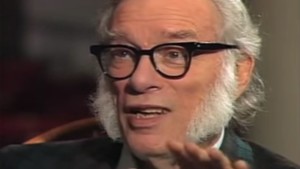At a discussion with university students and others this past Saturday, the young daughter of the man overseeing the event asked me if monks ever go on vacation. I answered, as I normally do, that, no, we are always monks even when we travel. We get this question frequently, normally from adults. Hearing the question from a youngster, however, brought out for me the inadequacy of my pat response. So, in the hopes that her father may share this more considered response, and that it may be of some use to others who may happen upon it, I set down here what I would have liked to have said to her then.
When your family goes on vacation, your father may be taking time away from work, and so is on vacation from his job. But he is not on vacation from being your father. In fact, he takes you and the whole family with him, and he serves you as a father wherever you go. And if he should have to travel without the family, it is not really a vacation because he is not with his family any more. Yet, as he is traveling, he is still your father, thinking about you, doing the things he needs to do to support you and the whole family. And he does this because he loves you, and your mother, and your brothers and sisters.
So it is that we never take a vacation from serving those whom we love. And so it is with the monk, whose love has been pledged to God instead of to a family. No matter where a monk travels, he does not take a vacation from serving God Whom he loves. If he has to travel somewhere in support of the monastery, to do business with worldly men and women for the sake of the monastery, he is still a monk, thinking about God, doing the things he needs to do to support his brothers who are also pledged to the love of God.
In fact, there is a kind of ongoing vacation that we all experience when we are together with those whom we love. The word “vacation” simply means “making space,” being free of manual work. The monk makes space for listening to God every day, as we should for those whom we love. When we love someone, we want to know how they feel, what happened in their day, and we want to share ourselves with them as well. As often as a family sits down to dinner and shares time together, they are sharing a miniature “vacation” (at least until it’s time to do dishes!). Everyone at the table is making time to be together and to relax a bit away from work. When we go away for vacation, this is to remind ourselves that we need this time each day, that our routine should never dull us to the great gift we have of each other, which often needs rediscovering. Now the monk, having been called out of the world to a life in solitude with God, is, in some ways, always on vacation, for he is striving to clear away as much as he can of anything that separates him from God. He is trying to make as much space in his day and in his heart as he can, for the Friend he is hoping to welcome, Whose voice he is seeking, exceeds all that we can love and desire. But, as I have already shared with you, I believe that family life has many of these same qualities, when we are striving to love one another. This is not always easy–believe me, I know this! But I also know that that love of our parents, sisters, and brothers is very much like the love of God–Jesus Himself said so! And so we are all, each in our own way, striving to grow in love by making space for others in our lives, and being welcomed by them into their hearts as well.


